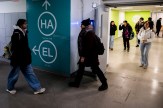Northeastern at the forefront of Massachusetts’ AI-driven economic growth, governor says in announcing AI Hub
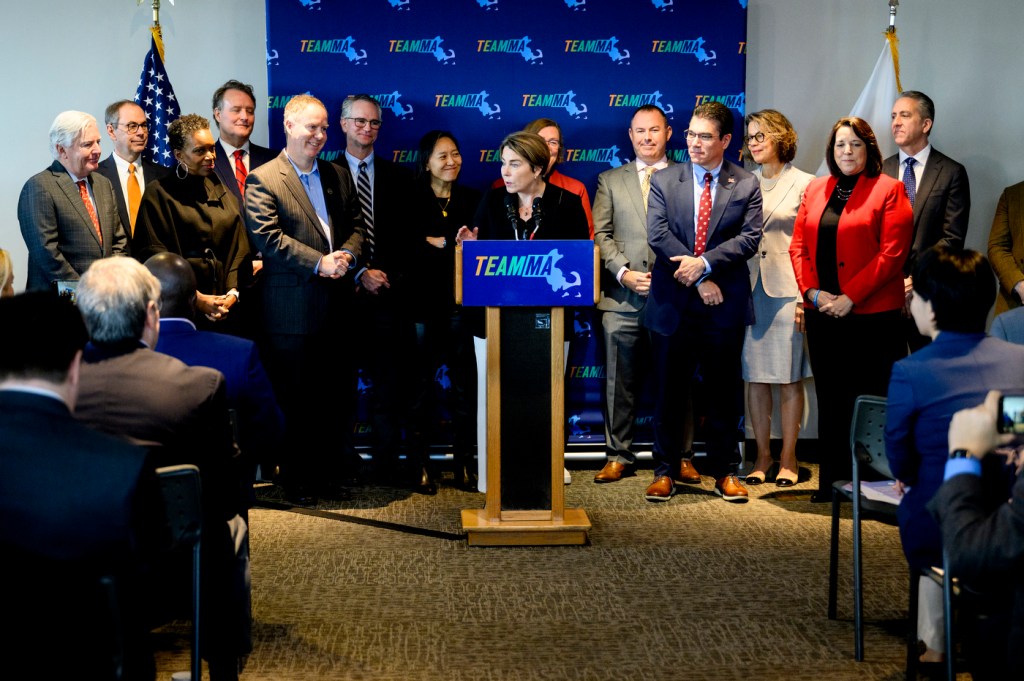
The commonwealth of Massachusetts is betting big on artificial intelligence to power the future economy.
And state leaders are placing this bet with Northeastern University’s co-op model in mind.
“Northeastern students have worked with state teams to try out AI tools that are now, right now, improving the delivery of service — it’s a big deal,” Massachusetts Gov. Maura Healey said at a press conference Thursday.
The event was held to announce the Massachusetts AI Hub — a collaboration among government, industry, startups and academia to make Massachusetts the leader in AI.
Healey told the audience that she was “floored” when Northeastern students presented projects they worked on with state agencies.
For example, students developed a generative AI chatbot designed to assist MBTA customer service representatives.
“You know what’s even greater? These students now, many of them are going to come work for the state of Massachusetts,” Healey continued, drawing a round of applause.
“So we want to build on this success,” Healey said.
Massachusetts’ political, business, academic and technology leaders gathered at the Museum of Science on Thursday morning to launch the Massachusetts AI Hub.
“We are going to be the state where AI solves problems large and small; grows our economy; creates new jobs, careers and business opportunities for people; and we will do it the right way,” Healey said.
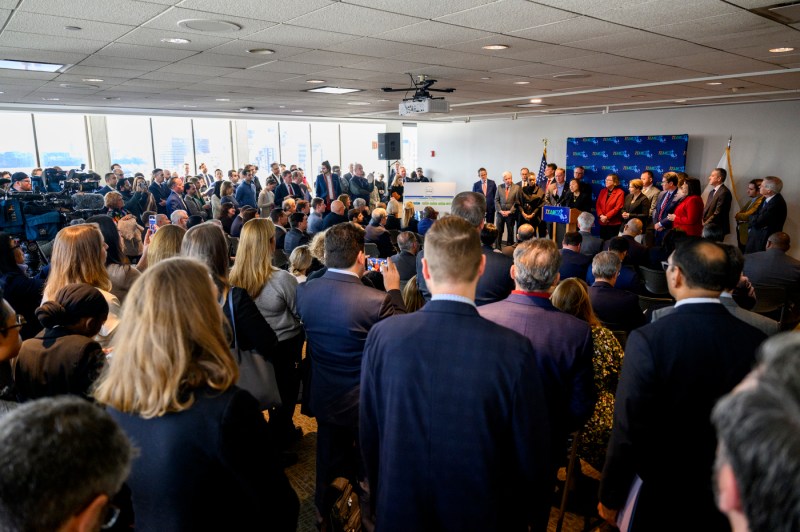
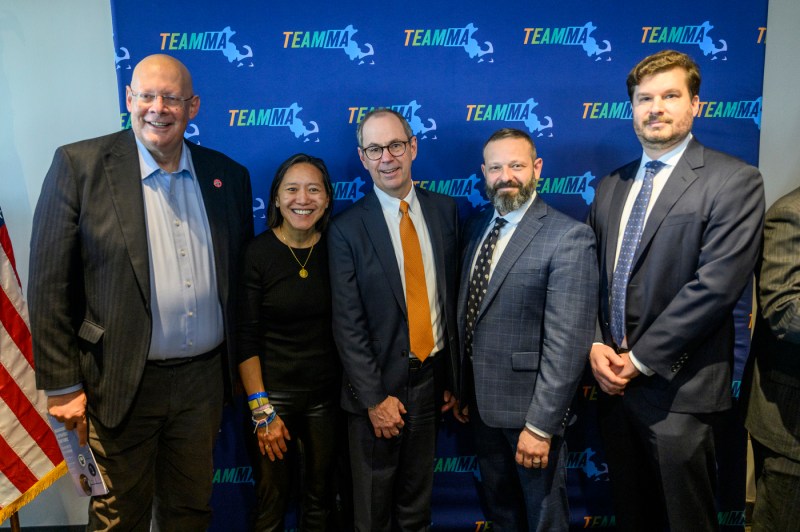
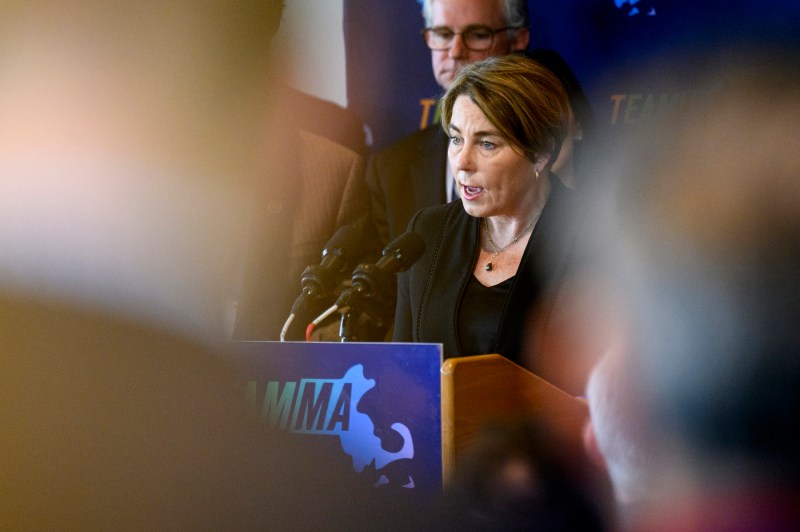
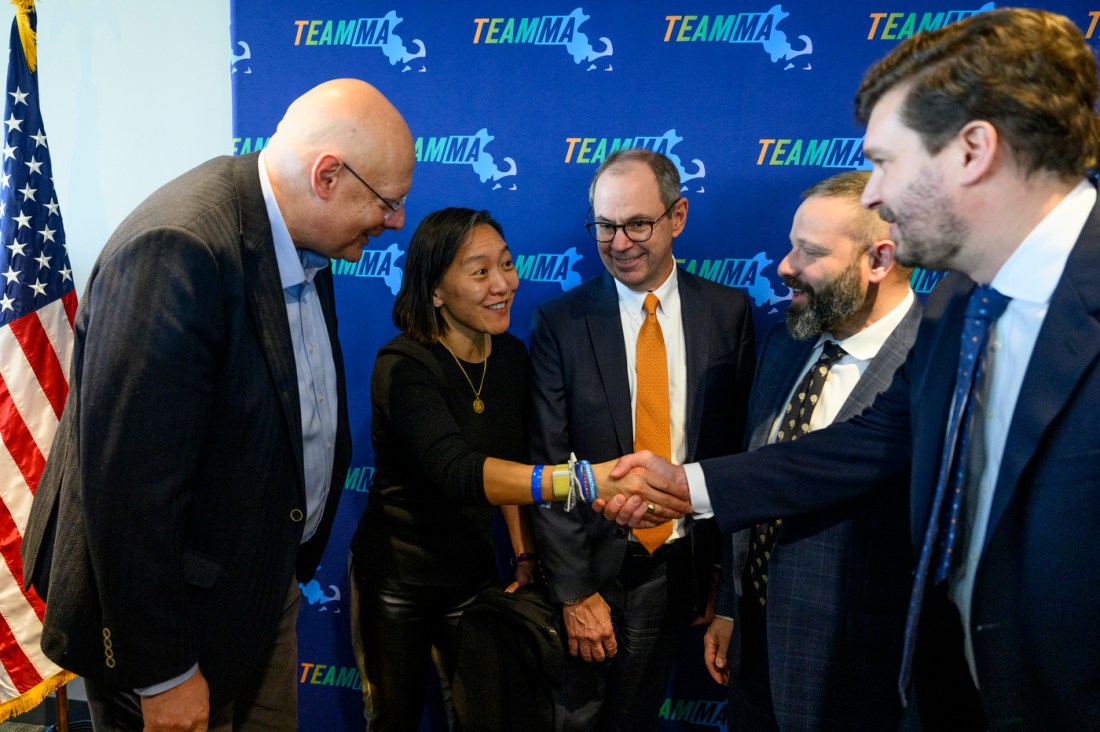
The AI Hub will be led by the Mass Technology Collaborative and will fund academic research, foster a homegrown AI industry and harness the potential for real-world applications in health care, life sciences, climate, tech, finance and much more, according to the governor. It is funded by the “Mass Leads” economic development bill recently passed by the Legislature.
The hub consists of three main areas: a commitment to values and equity; physical AI infrastructure as represented by labs and the Massachusetts Green High Performance Computing Center (MGHPCC) in Holyoke; and AI talent and ecosystem development through future AI challenges and experiential learning opportunities.
Northeastern has played — and will continue to play — a major role in all areas of the hub.
Usama Fayyad, professor and executive director of the Institute for Experiential AI at Northeastern, was a member of the AI Strategic Task Force that helped develop and advise on the AI Hub project.
Featured Posts
Fayyad cited several things that he emphasized to the task force, including making experiential education a priority. He also stressed that the work must address real-world problems and focus on existing areas of strength such as life sciences, financial services and education.
“It’s not enough to do lectures, it’s not enough to teach material,” Fayyad said. “This is about figuring out ways to practice it and incorporating that practice — that experiential education — as part of these programs.”
Gene Tunik, professor and associate dean of research and innovation at Northeastern’s Bouve College of Health Sciences, said the hub will not only propel Massachusetts forward with AI, but could serve as a model for other states.
“It’s not just a great step,” said Tunik, who is also director of AI+Health & Human Performance at the Institute for Experiential AI and a member of the Massachusetts AI+Healthcare Working Group that advised the task force. “It’s an essential step.”
And Fayyad said that with the university’s focus on experiential learning through co-ops, orientation to solving real-world problems and focus areas in life sciences and health, will help Northeastern take advantage of the hub.
“I think Northeastern is positioned in a very good spot,” Fayyad said.






